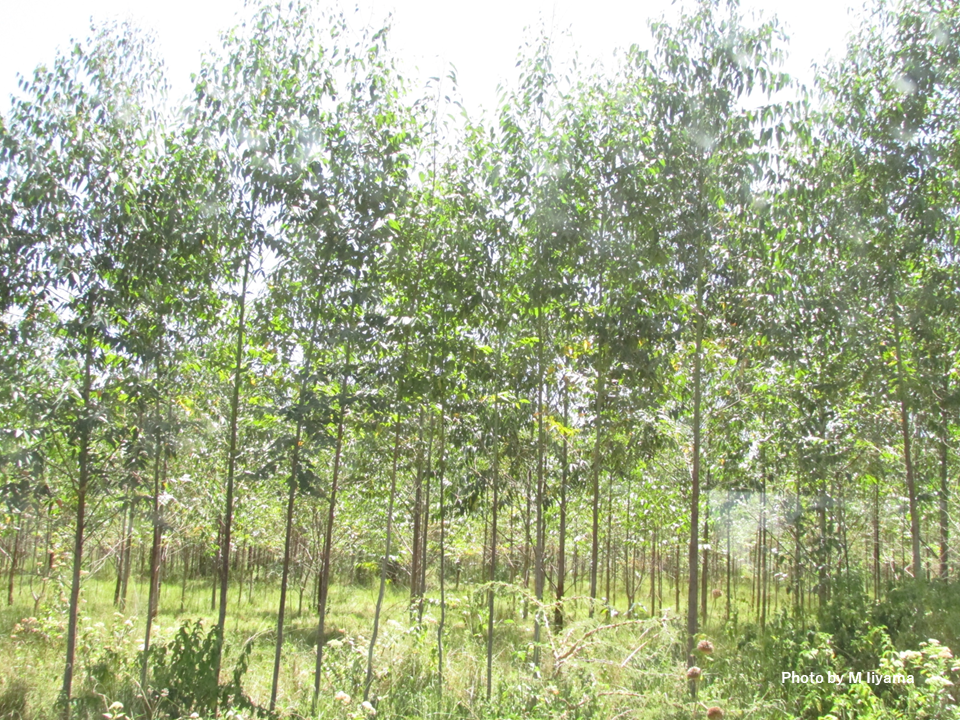Pick Up
957. Natural Climate Solutions ~ The NCS Philosophy

957. Natural Climate Solutions ~ The NCS Philosophy
The concept of Natural Climate Solutions (NCS), which emerged around 2017, has attracted attention for its potential to mitigate climate change, which is accelerating at an unprecedented rate, and to help prevent catastrophic events. On the other hand, NCS is often understood in an abstract way, which often leads to confusion and misunderstanding with other climate solutions concepts, so a clear definition of the concept is needed. Today, we present a review paper that examines previous NCS-related discussions in order to define NCS more clearly.
NCS refers to the intentional management of forests, wetlands, grasslands, oceans, and agricultural lands to conserve, restore, and enhance them for the purpose of mitigating climate change, which is also defined as practices that have a net zero negative impact on food and fiber supply and biodiversity loss, while being implemented in a socially and culturally responsible manner. NCS is defined as a practice that is implemented in a socially and culturally responsible manner.
On the other hand, while NCS focuses specifically on climate change mitigation, it also includes carbon dioxide removal (CDR), nature-based solutions (NbS), agriculture, forestry and other land use (AFOLU), and biodiversity conservation. In terms of the overlap between the concepts of NCS and CDR, reforestation, for example, actually removes carbon dioxide from the atmosphere, whereas conversion of peatlands to agricultural land does not. However, avoiding the conversion of peatlands to agricultural land is positioned as avoiding greenhouse gas emissions, so NCS and CDR are not fully aligned. NbS, which covers social issues beyond climate change mitigation, is a broader concept than NCS, and NCS is almost synonymous with mitigation measures in the IPCC's AFOLU.
In implementing the NCS, we must ensure food security for a growing world population while taking full account of the natural environment and promoting climate change mitigation. At the same time, the benefits of climate change mitigation must be quantifiable and clearly measurable, while taking care not to impose long-term changes on ecosystems, such as hidden costs and secondary and tertiary impacts. In addition, given that past and present natural resource management in agricultural, food and environmental policies has resulted in a large imbalance between benefits and burdens, NCS must be carefully formulated and implemented so as not to compromise the human rights of local and indigenous populations and to avoid inequitable outcomes such as forced displacement and land expropriation.
The review paper distills the principles and conditions of NCS activities and summarizes five common foundational principles and 15 operational principles for their implementation, as described below.
Principles of NCS
1. Nature-based
1.1: NCS result from the human stewardship of ecosystems
1.2: NCS do not move ecosystems further from their natural state
2. Sustainability
2.1: NCS sustain biodiversity
2.2: NCS sustain food production
2.3: NCS sustain fiber and wood production
2.4: NCS sustain climate adaptation services
3. Climate-additional
3.1: NCS provide additional climate mitigation that would not happen without human intervention
3.2: NCS provide durable mitigation
3.3: NCS are not used to compensate for readily abatable emissions
4. Measurable
4.1: NCS are quantified in terms of cumulative effects on radiative forcing
4.2: NCS accounting is conservative
4.3: NCS with uncertainty ranges greater than the estimated climate mitigation should be flagged as emerging
4.4: NCS accounting avoids double-counting
5. Equitable
5.1: NCS respect human rights
5.2: NCS respect indigenous self-determination
Expectations are high for the formulation and utilization of the NCS in contributing to building a sustainable world and climate mitigation.
Reference
Ellis, P.W., Page, A.M., Wood, S. et al. The principles of natural climate solutions. Nat Commun 15, 547 (2024). https://doi.org/10.1038/s41467-023-44425-2
Contributors: Solongo TUMUR and IIYAMA Miyuki (Information Program)
